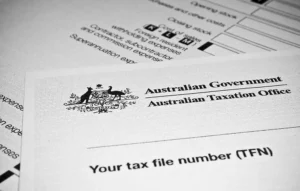
The Undesirability of Appeals in the Family Court
Recently, we have had a number of cases where parties have good prospects to appeal, but
Call us on
In my view, it is becoming increasingly more important for parties to seriously consider entering into a Financial Agreement that is binding (colloquially called a pre-nuptial agreement) before entering second or third relationships. The reason for this is the ongoing uncertainty with the Family Court system and the current substantial delays and costs that are occasioned upon parties.
Couples need to take a sensible business approach to their relationships. They need to look at the reality that despite their best intentions, there is always a risk a relationship will fail. If it fails now, compared to a relationship that failed 30 or 40 years ago, the costs are so much higher.

In my view, we currently have a Full Court that delivers outcomes that are often difficult to understand. There are outcomes that will generally be unacceptable to many members of the community. There are outcomes, dished out every day, that allow spouses to share substantially in another spouse’s inheritance, for example, and / or to share substantially in gifts of property, land and other things that are provided to the other spouse before, during or after a relationship ends.
Relationships are changing – people still want the same things in a relationship but are more business savvy nowadays. The law has not kept up.
In my view, entering into a second or third relationship requires a very important consideration from both parties as to what they should do and what they should put in place to lessen any future dispute should they separate.
We have a lot of enquiries about Financial Agreements and often people think they are too expensive, and the cost is too high. I will say a bit more about this in later editions of our newsletter, but it is important to understand that a good Financial Agreement does not just involve the drafting but also involves due diligence undertaken before entering into it.
That is, before parties enter into a Financial Agreement, a good family lawyer will ask numerous questions and make various enquiries all designed to ensure that the agreement has the best possible chance at standing up to future challenge in the Family Court. Often people want to rush into these agreements and simply think that a standard template will do the job – nothing could be further from the truth.
Below are some examples of the due diligence questions that we ask and undertake in the preparation of each and every Financial Agreement. However, each case is different and usually we insist upon talking to our clients and / or their advisors in detail to get a feel of any special issues that may be relevant. The list of relevant enquiries can include the following:
In my view, we currently have a Full Court that delivers outcomes that are often difficult to understand. There are outcomes that will generally be unacceptable to many members of the community. There are outcomes, dished out every day, that allow spouses to share substantially in another spouse’s inheritance, for example, and / or to share substantially in gifts of property, land and other things that are provided to the other spouse before, during or after a relationship ends.

Recently, we have had a number of cases where parties have good prospects to appeal, but

It is probably commonsense and goes without saying, but in so many matters we have clients

The Family Law Amendment Bill 2023 (Cth) which was passed on 19 October 2023 will result


The Privacy Statement of the Company is incorporated into these Terms and Conditions. The Company respects the privacy of all its customers and business contacts. The Company is subject to the requirements of the National Privacy Principles which are contained in the Privacy Act.
1. How is personal information collected?
Your name, email address and phone number are collected on the contact form to allow the Company to contact you.
If you email or phone the Company directly, then the Company may record your personal details.
Your personal information may be used to:
a) Improve service to you, the customer
b) The Company may use personal information about you for marketing and research purposes. If you do not wish this to occur, please contact us and we will ensure this does not occur
c) Your personal information is not disclosed to any organisation outside of the Company.
2. Will personal information be given to anyone else?
The Company does not sell or provide your personal information to any other company.
3. Security of personal information
The Company employees are required, as a condition of their employment, to treat personal information held by the Company as confidential, and to maintain the confidentiality of that personal information.
The Company protects the personal information it collects in a secure database.
4. Access and correction
You can access your data at any time by contacting the Company directly.
You also have the right to ask us to correct information about you which is inaccurate, incomplete or out of date.
We ask you to contact the Company by email or phone using the Company contact details if you wish to access or correct any of your personal details.
5. Online privacy issues
To the extent that this Privacy Policy applies to online privacy issues, it is to be read as forming part of the terms of use for our website. When you deal with the Company whether online or otherwise, the Company takes its privacy obligations seriously.
6. Additional privacy information and how to contact the Company
The Company may change its Privacy Policy at any time.
For further information about privacy issues and the protection of privacy visit the Australian Federal Privacy Commissioner’s website at www.privacy.gov.au. If you feel that The Company is not complying with this Privacy Policy, or if you have other privacy concerns, please contact the company.